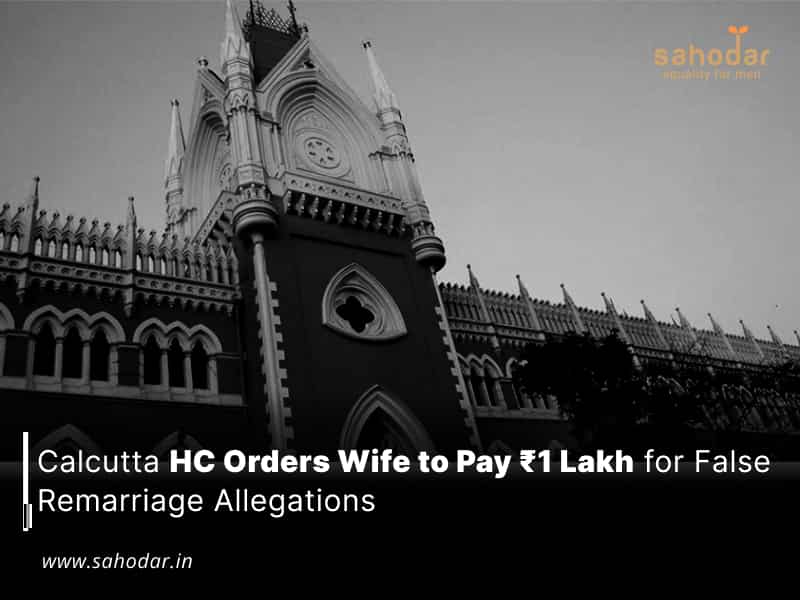The Calcutta High Court’s circuit bench at Port Blair has ordered a woman to pay ₹1 lakh to her husband for defaming him by publishing an unsubstantiated public notice about his alleged remarriage in a local newspaper.
Justice Supratim Bhattcharya held: Thus Smti Ananta has neither revealed the source of obtaining the information nor she has been able to name the girl with whom she has implicated her husband (Ramchander). From the aforementioned discussion it transpires that the notices were referred to the plaintiff that is Ramchander and the statements were published in a daily newspaper which is circulated in the Andaman and Nicobar Islands. Through the notices it is clear that the appellant/wife has admitted the fact that the notices were published targeting her husband, that is Ramchander and from the notices it also transpires that therein allegations were made as regards to second marriage by Ramchander in spite of having subsistence of first marriage. This according to a prudent man is nothing but a statement degrading the goodwill or reputation of a person.
Facts of the case
Ramachander, employed as an Assistant Engineer (Electrical) with the Port Blair Municipal Council, and his wife, Ananta, working as a Draughtsman in the APWD department under the Andaman & Nicobar Administration, Port Blair, were married on 02.03.1994.
From their marriage, a son was born on 24.01.1996. Over time, their relationship deteriorated, leading Ramachander to file Matrimonial Suit No. 27 of 2005 against Ananta on the grounds of cruelty and desertion.
The Trial Court had decreed the matrimonial suit, following which the wife filed an appeal (FA 03 of 2008). A Division Bench of this Court allowed the appeal, setting aside the Trial Court’s judgment and decree of dissolution of marriage.
Meanwhile, during this period, the wife published a notice in The Daily Telegram, a widely circulated newspaper on the island, on two occasions — 03.12.2008 and 05.12.2008 — alleging that Ramachander was attempting to marry another woman.
Based on the published notices, the husband filed a defamation suit. The Trial Court dismissed his claim for damages and compensation. However, the First Appellate Court awarded damages in his favor, prompting the wife to file the present appeal.
Court’s verdict
After considering the rival contentions, the court observed that during cross-examination, the wife admitted she had no proof of her husband’s alleged illicit relationship and further conceded that she did not even know the name of the woman he was purportedly planning to marry.
The wife also admitted that she had not disclosed the name of the person who allegedly informed her about her husband’s intended remarriage. Thus, from her evidence, it is clear that she could neither identify the informant nor name the woman her husband was allegedly planning to marry.
As for damages, the court observed that under Article 21 of the Constitution of India, every individual has a fundamental right to live with dignity.
In the present case, the wife published notices on two separate occasions in a daily newspaper widely circulated on the island. By her own admission, the publication was made without confirming details from the alleged informant. Despite her diligent efforts, she was unable to obtain any information regarding the identity of the woman she accused her husband, Ramachander, of being involved with.
“This according to a person of prudent thinking causes emotional distress to the person involving whom such news is circulated having no basis. Law of Torts does not have the power to put a person in incarceration but it has been empowered to award damages. To deter any person from spreading any baseless news defaming another person damages have been incorporated under the Law of Torts. Quantifying such amount of damages acts as a deterrent factor and nothing more than that and it is imposed to keep the society intact,” court noted while granting ₹1 Lakh as compensation.

